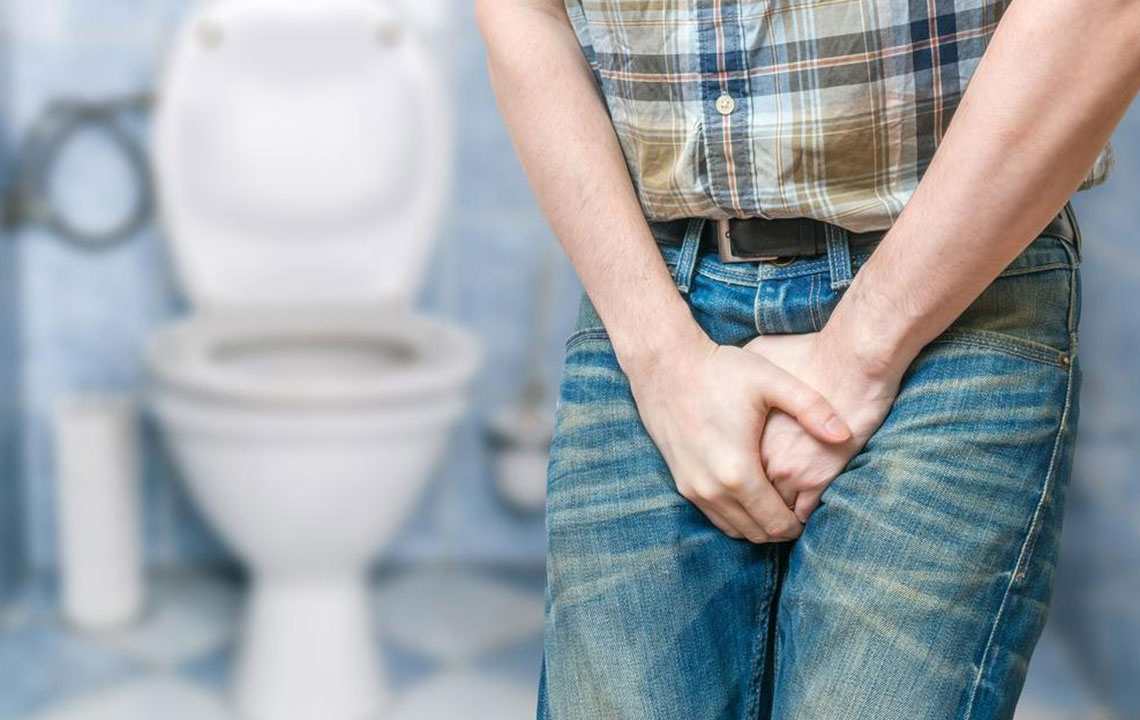How To Cure The Problem Of Frequent Urination
Frequent urination is the problem in which a person feels the need to urinate more than the normal times. The need to pee rises suddenly, and one can feel like losing control of the bladder. You could feel discomfort suddenly realizing that your bladder is full. The problem is known as having an overactive bladder.
As per the statements of the urologists (specialized doctors for dealing with problems with the urinary system), people who suffer from the problem of frequent urination go more than eight times for urination in a day.

Ignoring the problem won’t do well. It would even embarrass you at the worst times. It is advised to diagnose the underlying causes and seek proper medication and treatment.
Causes of frequent urination
Urinary tract infection : The urinary tract infection is a big reason for frequent urination. When the bacteria enter the bladder through the urethra, it probably causes UTI. Women suffer more from UTI as compared to men. It is due to the small urethra. Bacteria travel faster to the urinary tract, and likely show the symptoms of UTI. On an average, one-third women suffer from UTI before 24 years of age.
Some of the risks of UTI are:
- Inflammation and irritation of vagina
- Sexual intercourse results in introduction of bacteria into urinary tract
- Diabetes has severe impact on immune system
- Complications during pregnancy (changes in urinary system)
- Not fully emptying bladder can have serious effects on health
- Overactive bladder: Overactive bladder includes several symptoms which cause frequent urination. Overactive bladder is another reason for the problem. According to the study of American Urological Association 33 million Americans suffer from overactive bladder.
Symptoms of UTI are:
- High urination frequency (about eight times in a day)
- Nocturia (having to go for urination at least two times or more in a night
- Sudden strike to urinate (causes leaks even)
Reasons for overactive bladder
Some of the common causes of overactive bladders are estrogen deficiency due to menopause, health injuries; too much body weight exerts high pressure on the bladder, stokes, sclerosis which affects tissues and nerves.
Frequent urination is caused by many other health complications such as interstitial cystitis, diabetes, and bladder stones. High usage of alcohol, caffeine, and nicotine has a severe impact on the bladder walls and can worsen the urination problem.
How can you know you suffer from frequent urination?
The urinary tract infection (UTI) occurs in any part of the urinary system. Mostly UTI develops in the urethra and bladder. If you detect strong smelling urine or burning sensation while urinating, you may likely suffer from UTI. Blood spots in urine, nausea, pain in the lower abdomen, and less control on the bladder are some potential symptoms of UTI.
Diagnosis and testing of frequent urination
Get an appointment with the urologist and share your problem. The doctors may perform some tests to find the actual cause of the frequent urination. They may ask you following questions:
- How many times do you urinate?
- How long have you been suffering from UTI?
- Do you suffer from leaks of urine?
- What problems are you experiencing?
A urine sample is taken from the patient and is tested for blood, sugar and other possible infections. A pelvic exam is conducted to check the pelvis area and abdomen along with check-up of vagina and urethra. Cystoscopy involves usage of light equipment which helps the doctors to look inside the bladder deeply. The doctors can even collect tissue samples to detect other problems. Bladder scan includes an ultrasound test which helps the doctors find how much blood is left in the bladder after you have urinated. Urodynamic testing conducts several tests to determine if the urinary system is working properly or not.
Treatments for frequent urination
There are different treatments for frequent urination based on the actual cause. If infections are responsible for UTI, the doctor recommends antibiotics to cure the infection. Medications give great results for urinary incontinence and control the bladder muscles. Pelvic exercises help the patients to keep a control on urination and even delay it. Kegal exercises make the muscles strong and protect the urinary organs.
Some preventive measures to keep control on frequent urination:
- You can follow some precautionary measures to reduce the risk of frequent urination. Observing some basic steps, you can keep safe from UTI and over bladder high-risk problems.
- Do not consume some foods or drinks before going to bed or night time. Food products such as coffee, tea, alcohol, juice, artificial sweeteners, and tomatoes must be avoided. Such food items probably have the likelihood of nocturia.
- Take more fiber intake to reduce constipation. High and regular constipation problem exerts more pressure on the bladder causing frequent urination.
- If you suspect the signs of frequent urination, its right time to diagnose the underlying cause. Visit the urologist and seek proper treatment.


